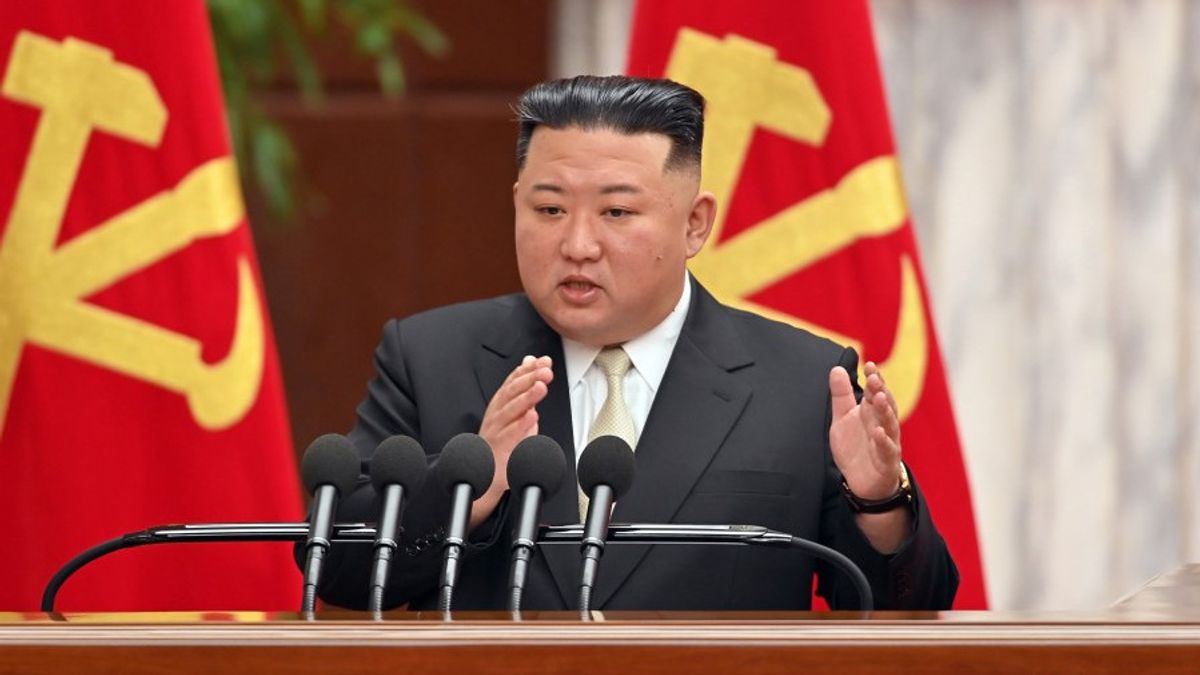North Korean leader Kim Jong-un ordered infrastructure improvements and expansion of agricultural land to increase food production, state media said on Thursday, amid warnings of the upcoming food crisis.
Kim gave instructions to change the irrigation system, build modern agricultural machines and create more fertile land as he completed the seventh plenary meeting of the ruling Labor Party Central Committee on Wednesday.
The meeting began on Sunday to discuss the "increasing" task of increasing the agricultural sector.
South Korea has warned of an increasing food crisis in isolated North Korea, including a recent spike in hunger deaths in some areas, which is partly due to the failure of a new grain policy that limits private plant transactions.
North Korea's economy has been hit by floods and typhoons, sanctions on nuclear and missile programs, to sharp declines in trade with China amid border closures and regional quarantine due to COVID-19.
South Korea's rural development agency estimates North Korea's crop production fell nearly 4 percent last year from the previous year, due to heavy summer rain and other economic conditions.
Kim is drafting plans and special tasks to build "rich and civilized rural socialist communities with advanced technology and modern civilization," the official KCNA news agency said.
Furthermore, Kim ordered improvements to the irrigation system to tackle climate change, efficient production of agricultural machinery to modernize production, and reclamation of ups and downs of land to expand agricultural areas, KCNA said.
The lack of adequate agricultural infrastructure, machinery and supplies including fertilizers and fuel have made North Korea more vulnerable to natural disasters, according to experts.
The mountainous nation has also sought to expand fertile land through the reclamation of ups and downs along its west coast since the 1980s, but previous attempts failed in part due to poor technique and maintenance.
Under Kim, the reclamation project was relatively more successful, but with the slow progress of turning coastal mudLAND into fertile agricultural land, they did little to help reduce food shortages, the US-based 38 North project said by the end of 2021.
"State media reports say they set new action goals and plans, but I don't see anything new as all elements including irrigation and reclamation have been raised before," said Lim Eul-chul, professor of North Korean studies at Kyungnam University in South Korea.
Meanwhile, Yang Moo-jin, professor at Seoul's North Korea University of Studies, noted that the report does not suggest new ideas or possible changes to South Korea's grain policy as the cause of food shortages.
KCNA said Kim stressed the need to tighten discipline in implementing economic plans, warning against "the practice of weakening the strength of cabinet organizations and executives," and ordering all party units to "verify their work efficiency."
In addition to food problems, the Central Committee also discussed ways to improve state financial management, KCNA reported, without elaborating.
The English, Chinese, Japanese, Arabic, and French versions are automatically generated by the AI. So there may still be inaccuracies in translating, please always see Indonesian as our main language. (system supported by DigitalSiber.id)








